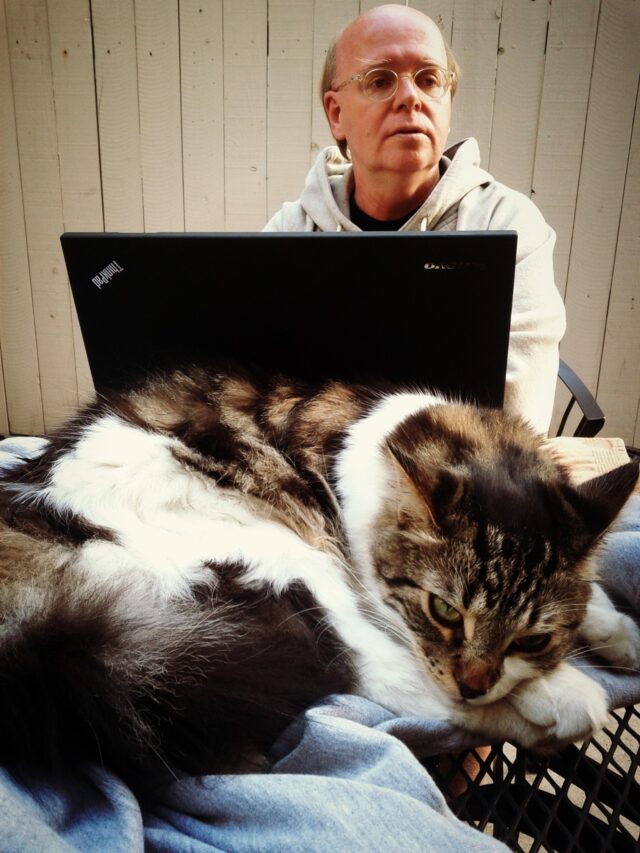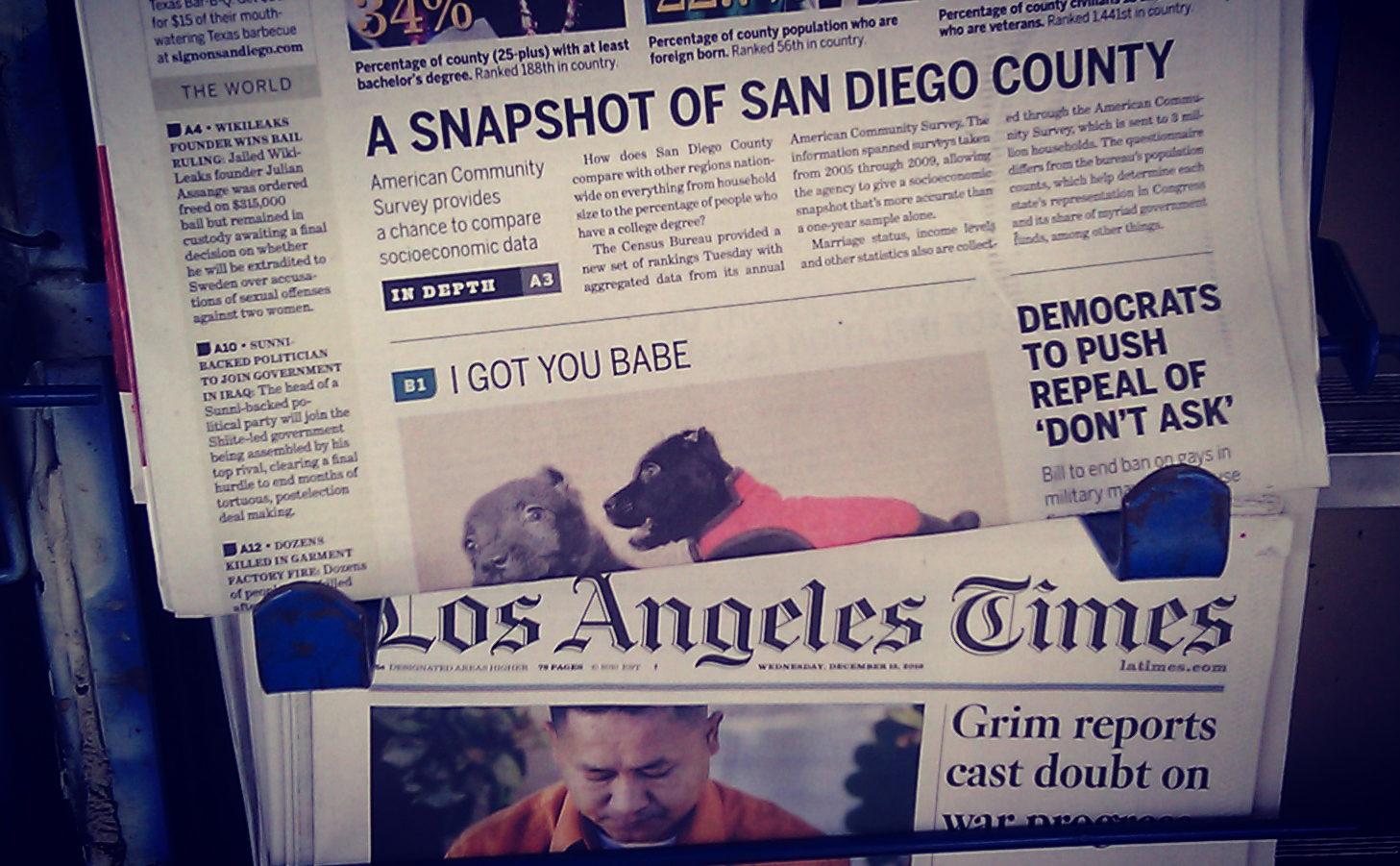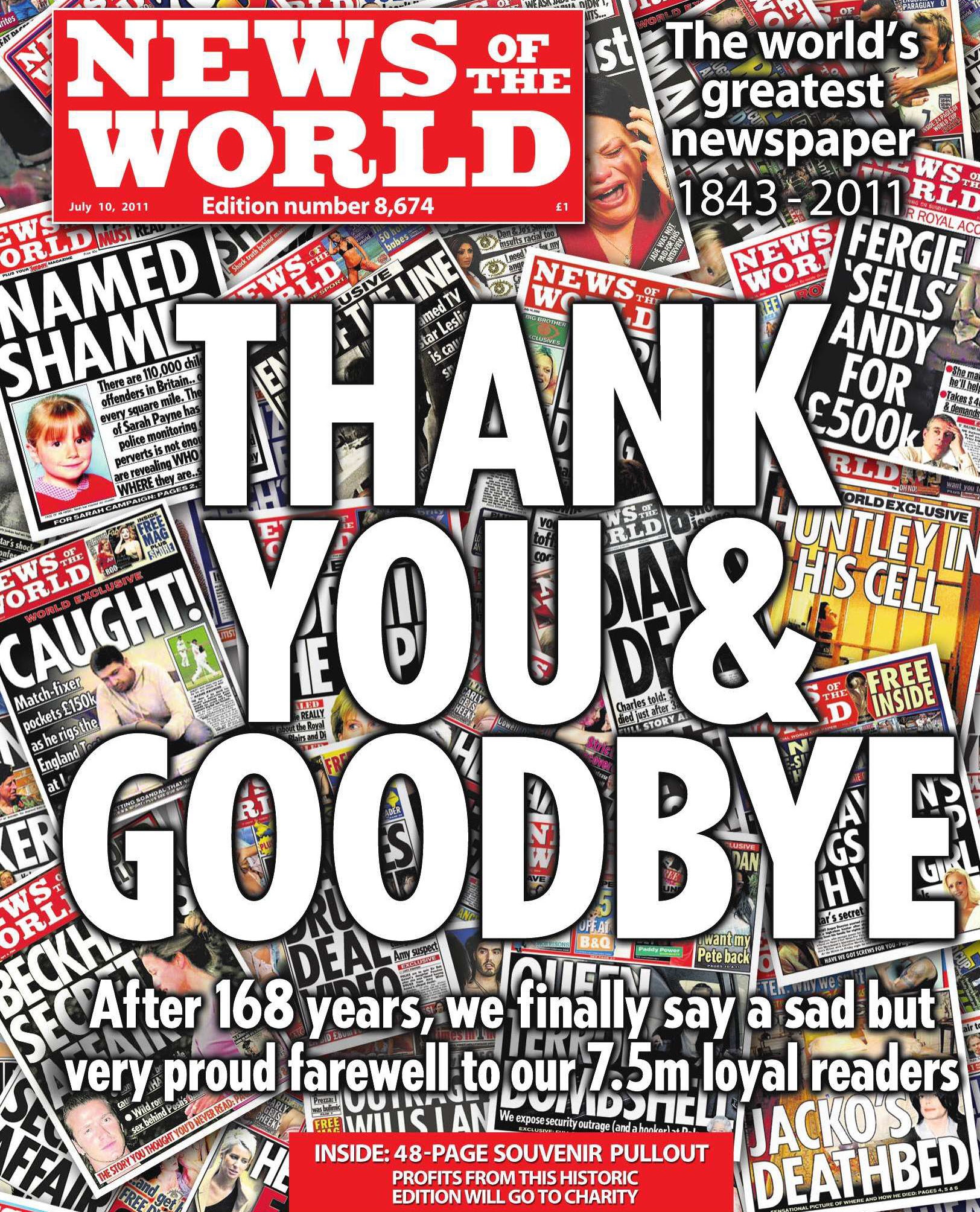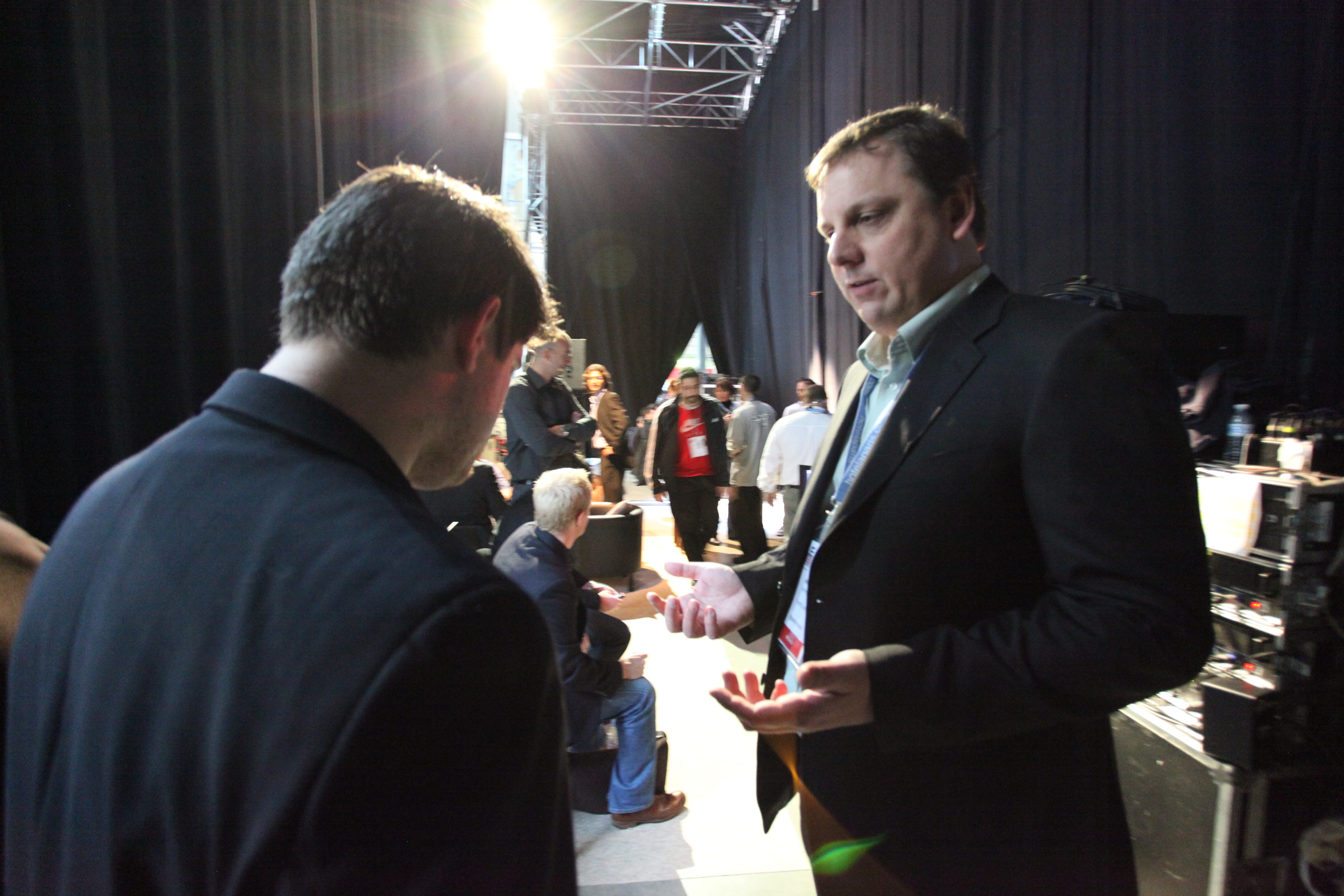Kuma sits with me in our courtyard, autumn 2011, back when I still used Windows and before we lost him. I’m not sure what’s up with his expression, which is unbecoming. But I like the […]


Kuma sits with me in our courtyard, autumn 2011, back when I still used Windows and before we lost him. I’m not sure what’s up with his expression, which is unbecoming. But I like the […]

Five years ago today, my wife, daughter, and I relocated to #sandiego . We came here to be close to my father-in-law, who turns 91 before this year ends. Much has changed since Oct. 15, 2007.

Four months ago, I put aside (and later sold) MacBook Air for the Samsung Series 5 550 second-generation Chromebook and never looked back. They say three times is a charm, and that proves true with my third foray using a laptop running Chrome OS. The first two proved life-changing, as I adopted a partial cloud computing lifestyle. Now I live a vigorous, charmed cloud life, which includes Android embrace.
Chromebook isn’t easy, because it demands a thinking reset. I had to put aside concepts about everyday computing, fear of losing Internet connection and perceptions about hardware configurations and what’s good enough performance value. Something else: When I started this journey, in December 2010, Chrome OS wasn’t good enough, because there weren’t enough supporting cloud apps. That has changed dramatically, because of Chrome Web Store and how much desktop-like utility Google now brings to cloud services like G+ or YouTube.

Continuing on my theme of accuracy about news reporting, particularly Apple and the wrongs of single-sourcing: As a rule I don’t quote FOSS Patents. There simply is too much pro-Apple bias in the analysis. I find little neutrality, yet FOSS Patents is often used as the only source on Apple legal cases by the majority of the US news media.
Even if I thought Florian Mueller’s posts were fair, I wouldn’t quote him, simply because he is so overused and so often as only so-called expert by so many bloggers, reporters, and other writers.

Punk rock roared across the globe as I started college in the late 1970s. Punkers protested their disco-loving, Baby Boomer siblings as much as “The Man”. UK punkers tapped into deep frustration among a younger population struggling for identity and future in face of global economic uncertainty.
Punk music then is much different than now. Then it was a lifestyle choice rooted in rebellion. Today, for bands like Green Day, punk, and all its garnishments, is fashionable. Mascara, colored hair, and tattoos are about fitting in to a larger, accepted social group. The real energy behind bands like the Sex Pistols is gone.

My fake mafia money-lending TV commercial (making a point about how attitudes have changed regarding what’s a high interest rate):
Scene opens with a handsome, greying man dressed in dark suit and tie standing by a burning fireplace, holding a glass of red wine. The hue is yellow.

There’s something wrong with American culture and emphasis on the individual. I got to thinking about it today when yet another neighbor dragged another dried-out Christmas into the common area and out into the back alley—this one spewing white spray-on fake snow to go with the pine needles.
I live in a small apartment complex—nine units and delightful common courtyard. Six of the units had Christmas trees this year, all live cut. (On Christmas Eve, we put up a 3-foot fake from Walgreens).

I am mortified by lazy reporting this morning. I’ve been looking over stories about Verizon requesting a California judge reject Apple’s request to bar numerous Galaxy-branded smartphones or tablets from selling in the United States. I have yet to find one story that cites the original source—Verizon’s filing. They all instead refer to a FOSS Patents blog post. According to the court calendar, a motion hearing is scheduled for October 13 (I looked).
FOSS Patents is not credible-enough source, because its story on this topic, as with others, is generally one person’s perspective. More importantly, in this case, original source material should be available through the court’s PACER system, which is where I assume FOSS got the Verizon filing (I don’t know).

So, let me understand. David Pogue, the popular blogger contracted by the New York Times, shills for public-relations companies—demonstrating gross conflict of interest—and the consequence is what? He’s barred from making certain PR-influenced speeches?
The Times doesn’t go nearly far enough. The excuse: “Pogue is a freelancer, not a staffer. Philip B. Corbett, associate managing editor for standards, noted that under the policy freelancers are held to the same standards as staff members ‘when they are on Times assignments’. In this case, he wasn’t on assignment for The Times”.

A month ago, April, 27, 2011, Michael Arrington posted “An Update To My Investment Policy”, which not surprisingly generated negative reaction from established journalists. I wanted to respond right away, but I’ve been too busy at Betanews, where new editorial responsibilities add to writing.
The issue is a long-standing one of debate regarding TechCrunch’s founder—that he invests in, or has other business dealings with, some of the companies he writes about.

I am used to my stuff being stolen, not that I like it—ideas, analyses, blog posts and news stories. Probably my Flickr photos frequently get lifted, too. I’m no great shakes photographer, so it pains but a little. The writing hurts more. But for good photographers like Thomas Hawk, Flickr theft is a bigger deal. Some people see Creative Commons, even All Rights Reserved, as license to steal; if it’s on the Web and freely available, it must be free.

This morning I tweeted: “I put Beatles albums in my daughter’s iTunes library years ago. Suddenly, now that Beatles are top iTunes downloads, she’s listening.” That succinctly explains what The Beatles get from the exclusive distribution deal with Apple. There are millions of Millennials who aren’t acquainted with Beatles music, and they might never be with their parents listening to it. But everything changes if their friends are Beatling.